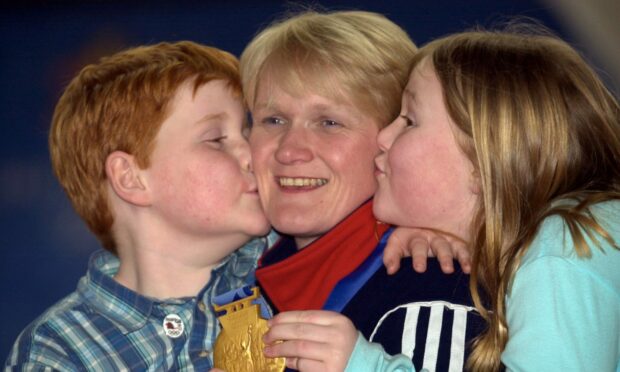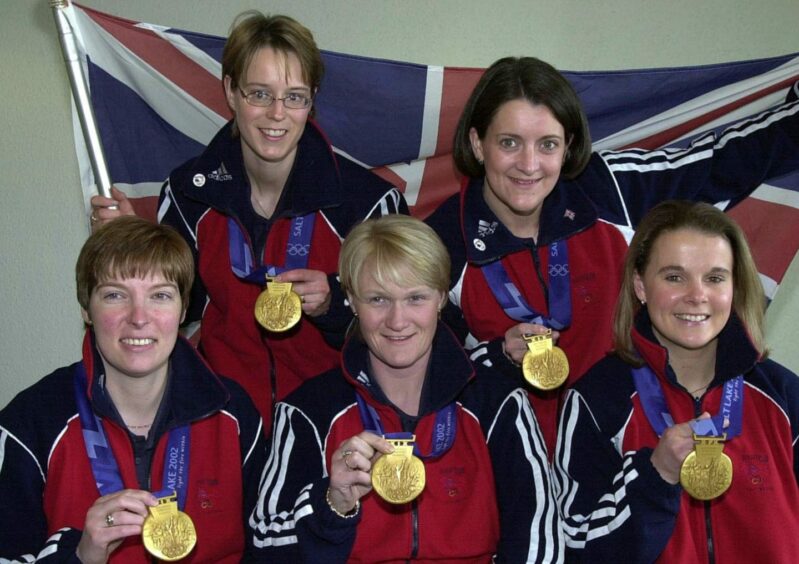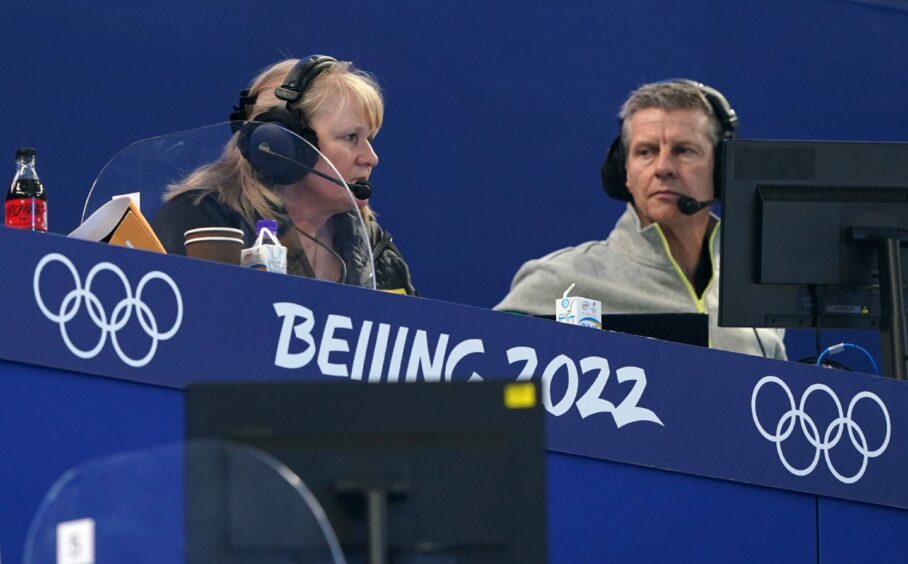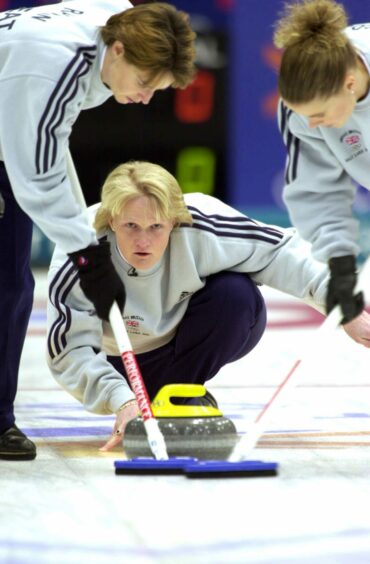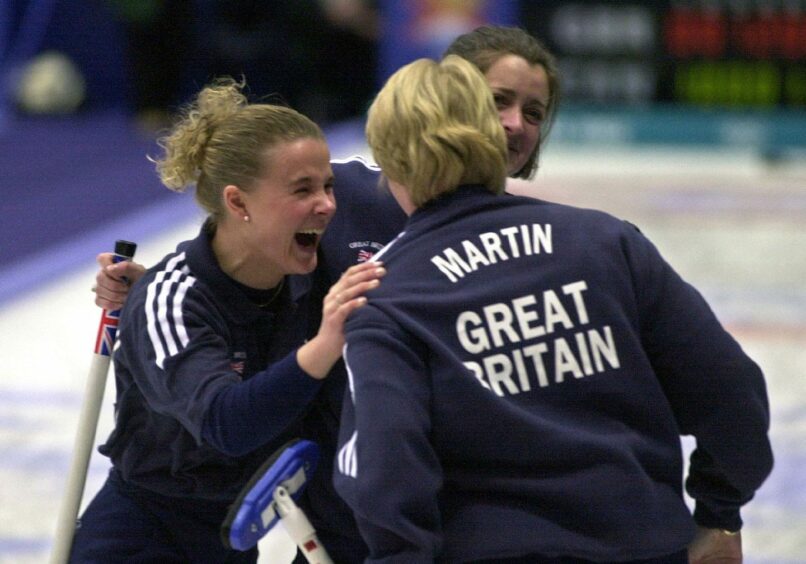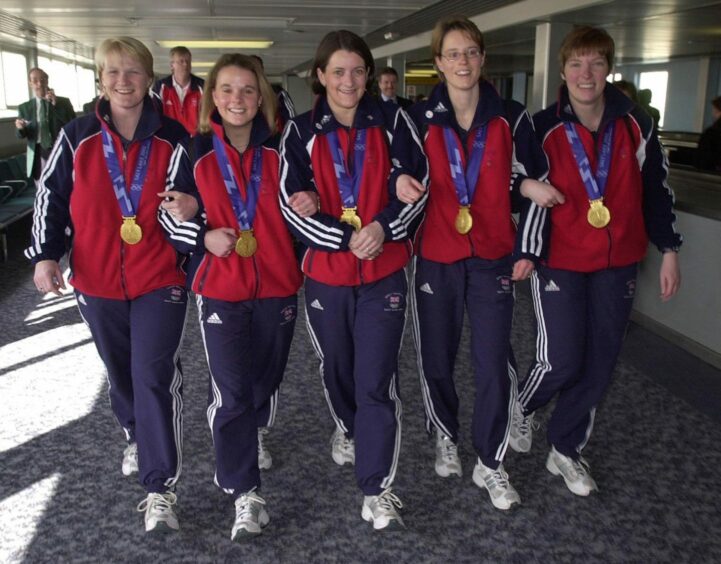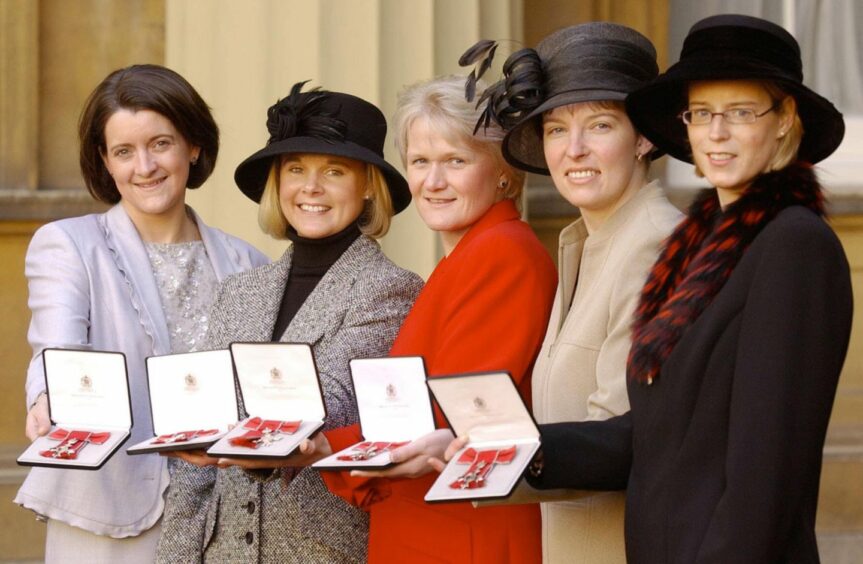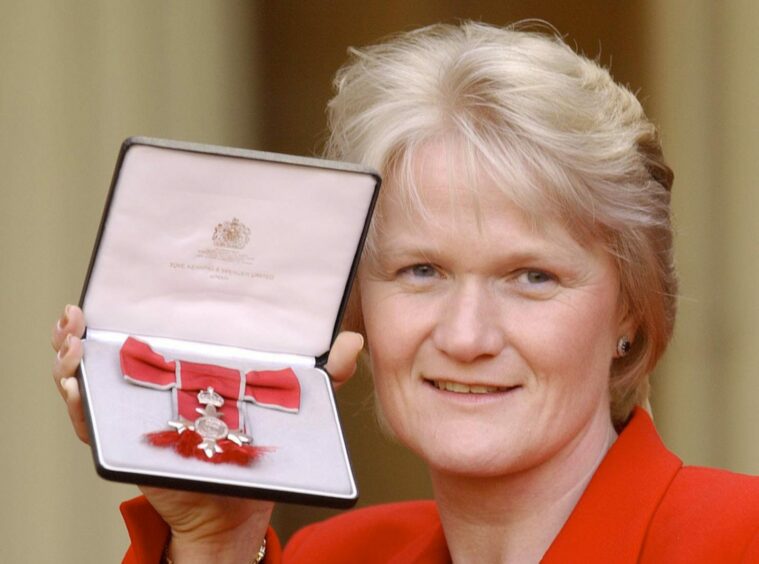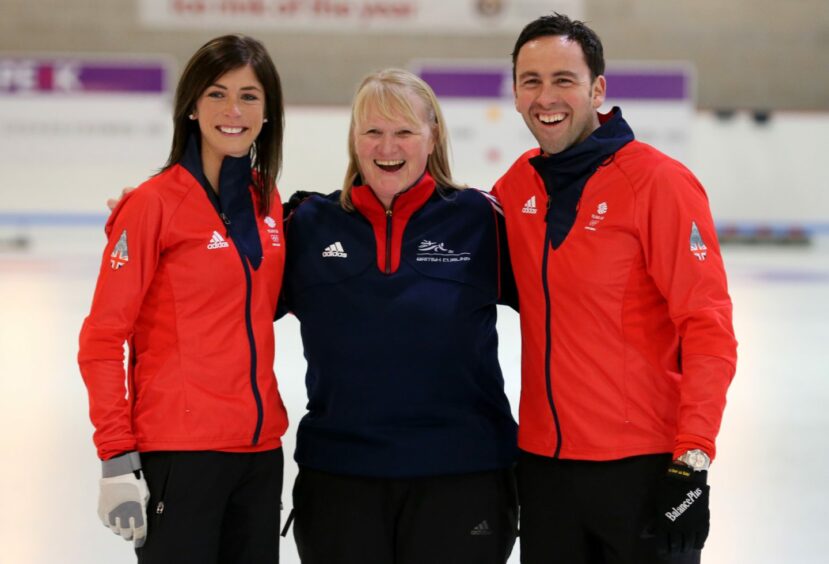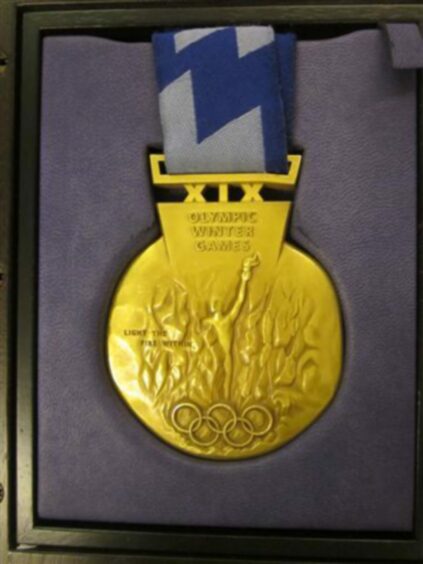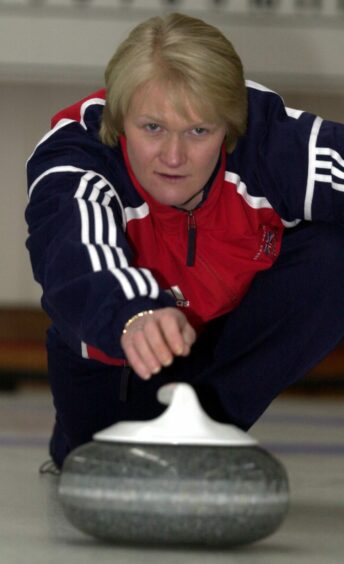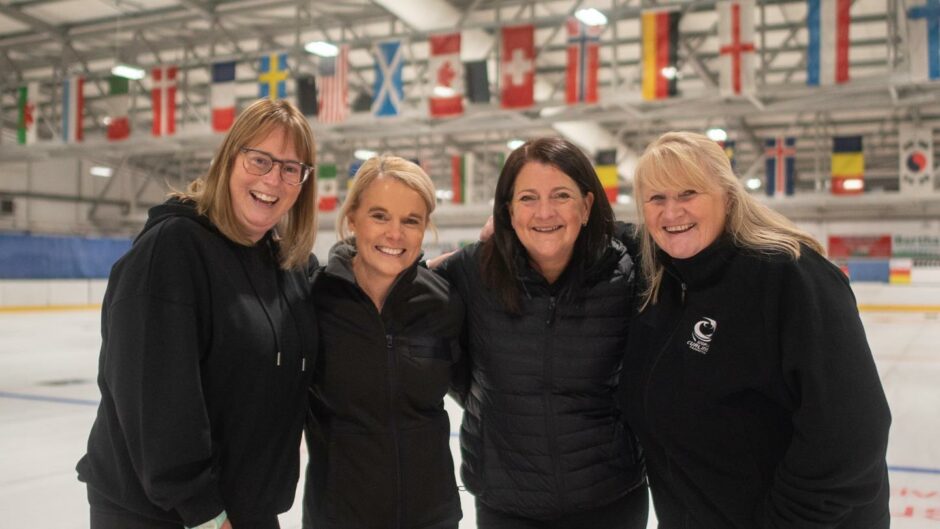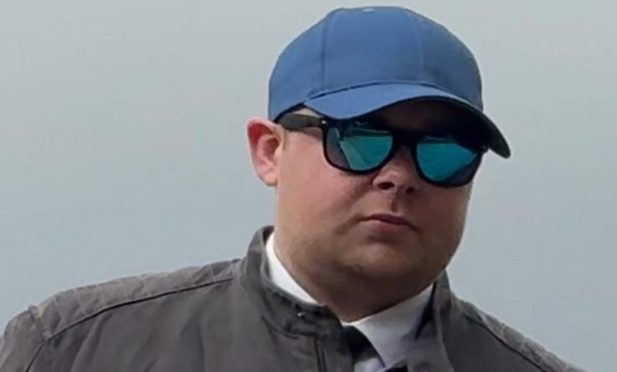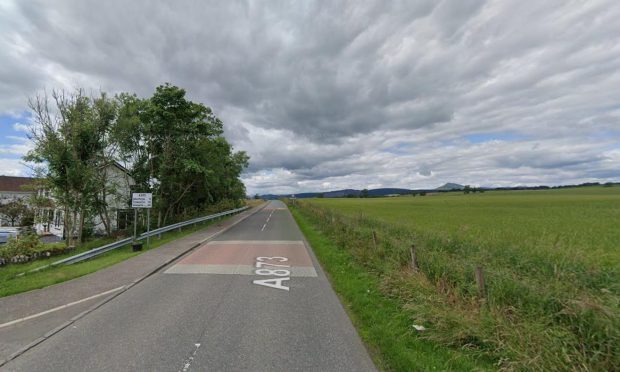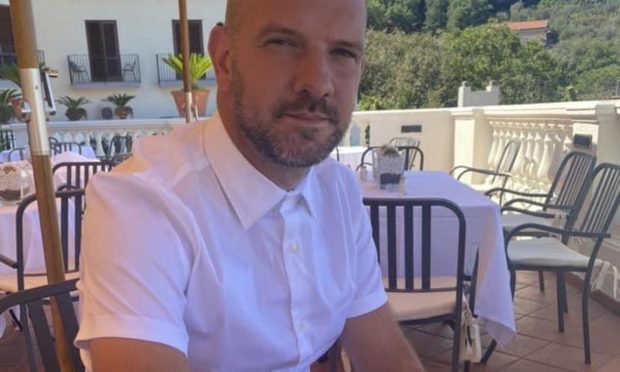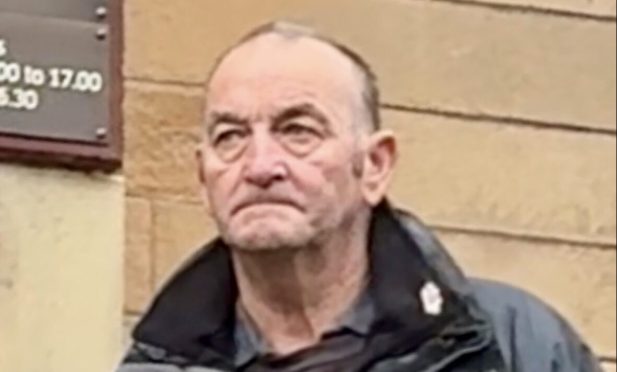Twenty years have passed since four “ordinary yet extraordinary” Scots women made history by winning Olympic gold in the curling final.
Before skip Rhona Martin and her teammates took to the ice at the 2002 Winter Olympics in Salt Lake City, curling was a quirky minority sport to the vast majority of Scots and virtually unknown to the rest of the UK.
By the time Martin kept her cool to play her last stone, six million British television viewers sat glued to their screens past midnight.
The events of February 21, 2002, are being remembered in a celebratory BBC Scotland film which marks the 20th anniversary of that sporting battle against the odds.
Team GB’s victory changed the image of women in sport and made sporting history – and it all came down to The Last Stone.
Golden memories
A lot has happened in Rhona’s life since that momentous day at the Weber County Ice Sheet in Ogden, Utah.
Now Rhona Howie MBE, she’s faced domestic upheaval, the theft of her gold medal, and even a stalker.
But in an interview with The Courier to mark the 20th anniversary of that final shot to beat the Swiss – and the chance to win what would be Britain’s first Winter Olympics gold since Torvill and Dean in 1984 – Rhona recalls how they approached it as “just another game”.
Only afterwards did it sink in what she and her teammates Fiona MacDonald, Margaret Morton, Janice Rankin and Fife’s Debbie Knox had achieved.
“It had been a long haul,” recalls Rhona, now 55.
“We had the nine round robin games. Then we had two play offs then the semi. We’d had 12 games before the final. The final was just another game.
“It was one we had to win at the knock out stages. You didn’t treat it as the Olympic Final. We went through the same processes, the same pre-game routines that we would always do.
“The coaches kept everything as normal as they could. They were obviously getting a lot of messages from back home etc but they didn’t tell us anything. We just carried on with what we were doing which was good.”
Broadcasting with BBC
Rhona is speaking to The Courier from Beijing where she’s been doing Winter Olympics commentary for the BBC.
Despite having been to China before with the World Curling Federation, strict Covid-19 measures mean it has been a very different experience to what she’s used to.
While public spectators have been kept away, at least 500 Chinese supporters have been allowed in to the curling rinks, meaning there’s been at least some noise.
The strict containment measures mean, however, that she’s not been able to go for walks.
Media can only get the bus from their hotel to the venue, and they are not allowed near the athletes’ village to reduce the risk of infection.
‘The Last Stone’ in 2002
Rhona, who’d never won a major event before the 2002 Olympics, laughs that it doesn’t feel like 20 years since Salt Lake City.
“It’s quite incredible how time passes,” she says.
She recalls how they always said it was their goal to get to the semi-finals and then “take it from there”.
Having beaten and been beaten by all the opposition, they knew that if they played well, they could beat the Swiss.
However, with the men’s team being the “media favourites” at the time, it suited the women’s team that they just “kind of slipped under the radar”.
“I had a shot to play to win the game,” says Rhona, recalling the final stone of the final end, and how it had been a slog of a game, from 1-0 down to 3-1 up to 3-3.
“The team had played so well to that stage that if I hadn’t made the shot they wouldn’t be best pleased with me!” she laughs.
“Everyone remembers that last stone. But we had 40 hours of competition.
“It was a long haul. It was mentally draining. A tough competition. A roller coaster of emotions. It was kind of a relief in the end – ‘ok we’ve got a shot to play to win, so let’s go for it’!”
Rhona remembers the “great euphoria” of winning the game.
However, it didn’t hit them they were Olympic gold medallists until they were presented with their medals and the national anthem played.
“When we came off the medal plaza, there was just media everywhere,” she says.
“We weren’t used to having that attention. I think that’s when it was like ‘oh my goodness what have we done?’ That was probably the start of it.”
Oblivious
Rhona says the team were oblivious to the media coverage and hype back home. That’s something they were “quite glad about”.
“In those days you weren’t watching things online,” she says. “We didn’t actually know at that stage how much curling coverage there was on the television, so we had no idea.
“Because we didn’t have social media and mobile phones, we weren’t aware of all the hype, which was good because we were in our bubble focusing on the job we had to do.”
Media coverage
Reflecting on the 2002 coverage, it’s notable how GB Women’s Curling team were portrayed by the British media as “housewives”.
Rhona puts this down to the fact that back then the team were working mothers who played curling part-time.
“I think in those days you always got jokes about curling your hair and sweeping the floors,” says Rhona. “That was just part of being a curler.”
But Rhona says they were glad to get the media coverage because it helped raise the profile of the sport.
“Once every four years you do get that opportunity to sell your sport at the Olympics,” she says.
“We have to take advantage of that. Probably when we won they (the curling authorities) weren’t ready back home to deal with the enquiries and the interest that we got. But it also has to be remembered those were different times.
“People kept saying we were “housewives”. For us, we were working, we were mothers, we were trying to achieve something in a sport we loved to play. By achieving that while you had other things going on was a big thing.
“It inspired women to do things.
“But on the other hand, the youngsters coming through nowadays are much younger than we were and they’ve had the opportunity and they are getting funded full time.
“So I suppose it’s a different kind of model if you like.
“Eve (Muirhead) is a great ambassador for the sport right now.
“But she’s aiming at a different market than we were aiming at back then. It’s a different sport nowadays but it has to be to keep up with the rest of the world.”
‘Surreal’ moments
Rhona says the gold medal win didn’t change any of them as people.
However, in the immediate aftermath, it did make life “a lot busier”.
From Prime Minister Tony Blair sending them a letter of congratulations to appearing live on the Richard and Judy show and meeting Tom Hanks the day before they got their MBEs, at times it was surreal.
“People wanted you to be in different places at different times,” she says.
“It made things a lot busier and we had opportunities we’d never had before – to go to other sporting events and things like that.”
Challenges
Rhona prefers not to talk about the end of her marriage in 2005 and the reported financial struggles that followed as a single parent.
Her raised profile also brought the attentions of a stalker between 2003 and 2005.
Having won Olympic gold in 2002, the ladies put pressure on themselves to perform at the highest level again.
There was disappointment at the 2006 Olympics when the Team GB curling team failed to progress.
“It was a different set up,” she says. “They just had a squad system. It was really like six weeks before the Olympics we found out who the team was, so it was really tough.”
Retiring after the 2006 Olympics, Rhona found a new lease of life in coaching.
She did the UK Sport Elite coach programme then took over the GB women’s programme, working with them up to Sochi in 2014.
Stolen medal
What troubled her more recently, however, was the theft of her Olympic gold medal from a display at Dumfries Museum in 2014.
“It was in the museum because they had the world seniors and mixed doubles in Dumfries so they set up a curling display which was a great display of curling though the ages,” she says.
“They had put my medal there. It was behind solid glass. But unfortunately they managed to get it out and I’ve never seen it since.”
Rhona explained that, working with the British Olympic Association, and getting hold of police reports, she “jumped through hoops” to get it replaced.
However, when the International Olympic Committee (IOC) sent a replica, she was disappointed to discover it was half the size of her medal, half the weight and had no ribbon.
“My stolen medal potentially could have been melted down,” she says.
“It’s not something somebody could sell on. But it’s the sentimental value for me.
“I’d take it into schools and talking to school kids – they feel a medal. If I inspired one kid, that made me happy and the fact I don’t have that now to try and inspire anybody else. That’s the disappointing part for me.”
Feeling lucky
Having been a player, a coach, and now working in media, Rhona feels “really lucky” to still be involved in the sport.
She thinks China have done a “fantastic job” making sure everyone gets to the right place at the right time and feels safe.
However, against the backdrop of controversies over human rights in China, she never gets involved in politics.
“I try to keep away from all of that, because I always think athletes have got so much to concentrate on to perform at the right time, and anything that distracts from that is just negative,” she says. “You deal with what you have to deal with.”
Without a doubt it’s been quite a journey for Rhona who got into curling as a teenager through her brother who had represented Scotland at junior level.
Despite hating it at first because it was “so cold and slippy”, she was bitten by the bug and progressed through the ranks.
She doesn’t have time for anything other than the “odd game” nowadays.
She enjoys the media work and working with the World Curling Federation, which is helping grow the sport.
But she also enjoys keeping in touch with her former team mates from 2002.
“We still keep in touch,” she says. “You’ve got that bond you created and such good memories. It’s nice.”
*The Last Stone airs on the BBC Scotland channel at 10pm on February 22. It’s also available to watch on iPlayer now.
